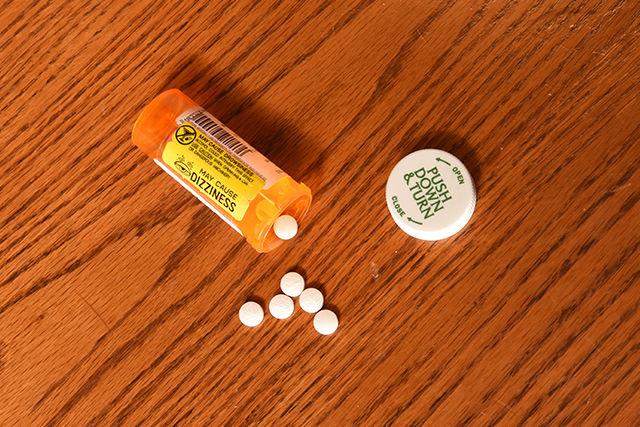In the history of the world, exactly zero people have died from a marijuana overdose. In 2014, 18,893 people lost their lives due to prescription painkiller (Hydrocodone, Oxycodone, Morphine, etc.) overdose, according to the American Society of Addiction Medicine.
Yet, to this day, the use of painkillers is not only prevalent, but also accepted as the norm. Meanwhile, marijuana is banned by almost all professional sports leagues, despite scientific evidence proving medicinal benefits, with the most notable being pain relief.
While we watch our sports idols entertain us on the playing field, many are suffering and dying due in part to the physical effects the games we all love entail. Athletes are told to take a pill and get back on the field.
But that’s not OK anymore, and none of us should accept that. Especially not when there is a safer alternative to these deadly and addictive drugs.
For many athletes, opioid addiction starts innocently and simply; they get injured and are told to take a pill that will alleviate their pain and allow them to return to game action sooner rather than later.
Take Derek Boogaard for instance. The 6-foot-7, 265-pound NHL enforcer was punched in the mouth during a fight and broke a tooth. He was immediately prescribed opioid painkillers and became hooked without wanting to or even knowing it.
He was prescribed 165 pills in the first four weeks after his injury, according to a lawsuit against the NHL filed by Boogaard’s family. Not long after, Boogaard began getting pills from numerous team physicians and eventually became so addicted, he approached an opposing team’s doctor for a prescription.
Three years after the initial incident, Boogaard died of an overdose on oxycodone.
The painkiller epidemic isn’t limited to just a single sport. Former NFL linebacker Scott Fujita described to the Washington Post the prescription drug policies of NFL teams. When he suffered a knee injury, he was given a prescription of what he estimated to be between 125 and 150 Percocet pills, saying “It was the craziest big pill bottle you’ve ever seen.”
Fujita also described playing for a separate team, whose assistant trainer went around before games handing out prescription painkillers like candy to any player who raised his hand.
The debilitating effects of opioid withdrawal are obvious: physical and psychological cravings, nausea, stomach pain, chills, cold sweats, diarrhea, vomiting, depression and more. These effects often cause those who are trying to break their addiction to return to using the drugs, and in many cases lead to overdose and death.
Marijuana seems like a logical replacement of prescription painkillers due to its proven medicinal benefits, lack of debilitating effects when use is stopped and the absence of death due to overdose.
Cannabidiol, or CBD, is a compound found in marijuana that is non-psychoactive, unlike THC, and has proven medical benefits.
A 2013 review published in the British Journal of Clinical Pharmacology found:
“CBD acts in some experimental models as an anti-inflammatory, anticonvulsant, antioxidant, anti-emetic, anxiolytic and antipsychotic agent, and is therefore a potential medicine for the treatment of neuroinflammation, epilepsy, oxidative injury, vomiting and nausea, anxiety and schizophrenia, respectively.”
Obviously, the biggest of these for the sake of athletes is the anti-inflammatory effects, as many who participate in athletics on a daily basis suffer from pain caused by inflammation.
The medicinal advantages of marijuana extend further than just inflammation help. The Journal of Bone and Mineral Research published a study that found bones healed quicker and were less susceptible to repeated fracture for people who consume CBD compared to those who don’t.
Finally, a 2014 patient survey published in the Hawaii Journal of Medicine and Public Health found that 64 percent of patients reported an average decrease in chronic pain after using cannabis. Numerous other studies have connected cannabis and pain relief as well.
It’s time for sporting leagues to drop their 1936-Reefer-Madness thinking and finally get with the times; cannabis is a much safer alternative to addictive painkillers for athletes dealing with injuries and pain.








